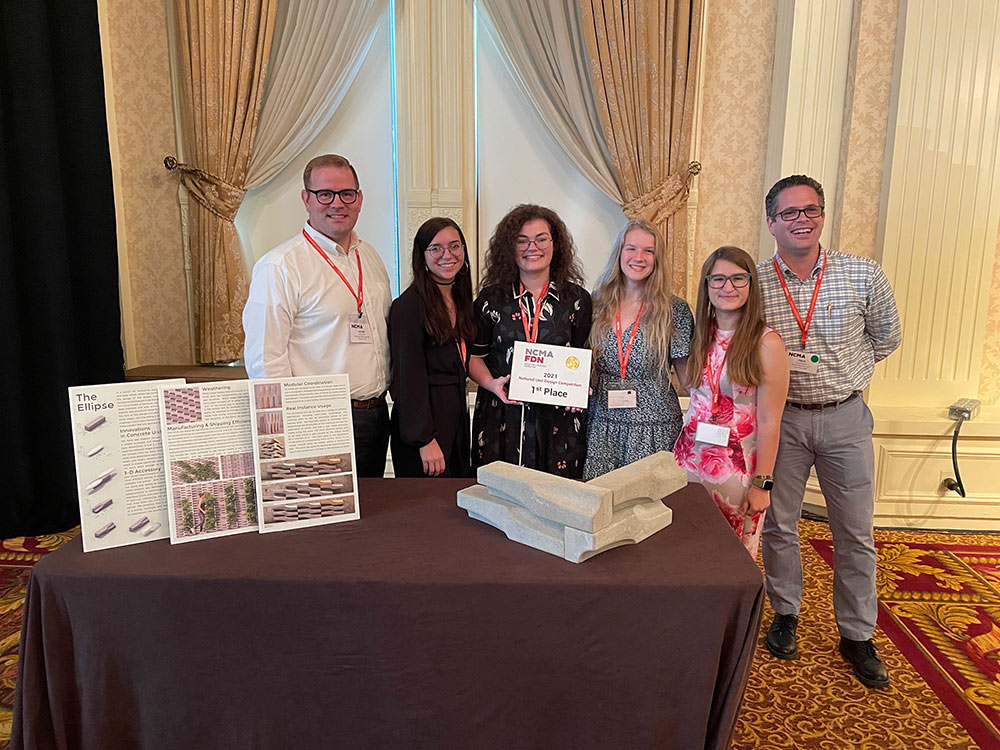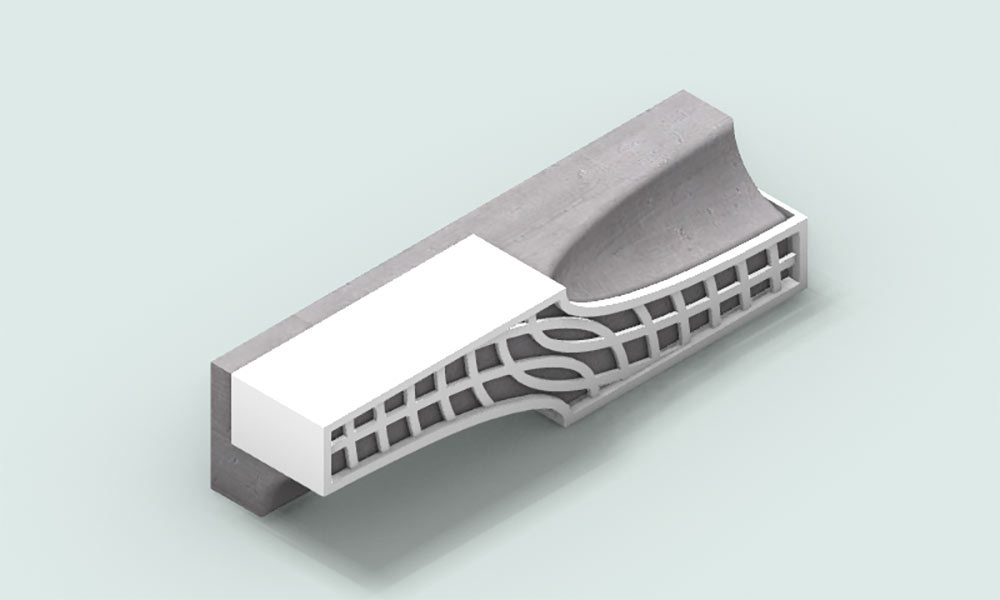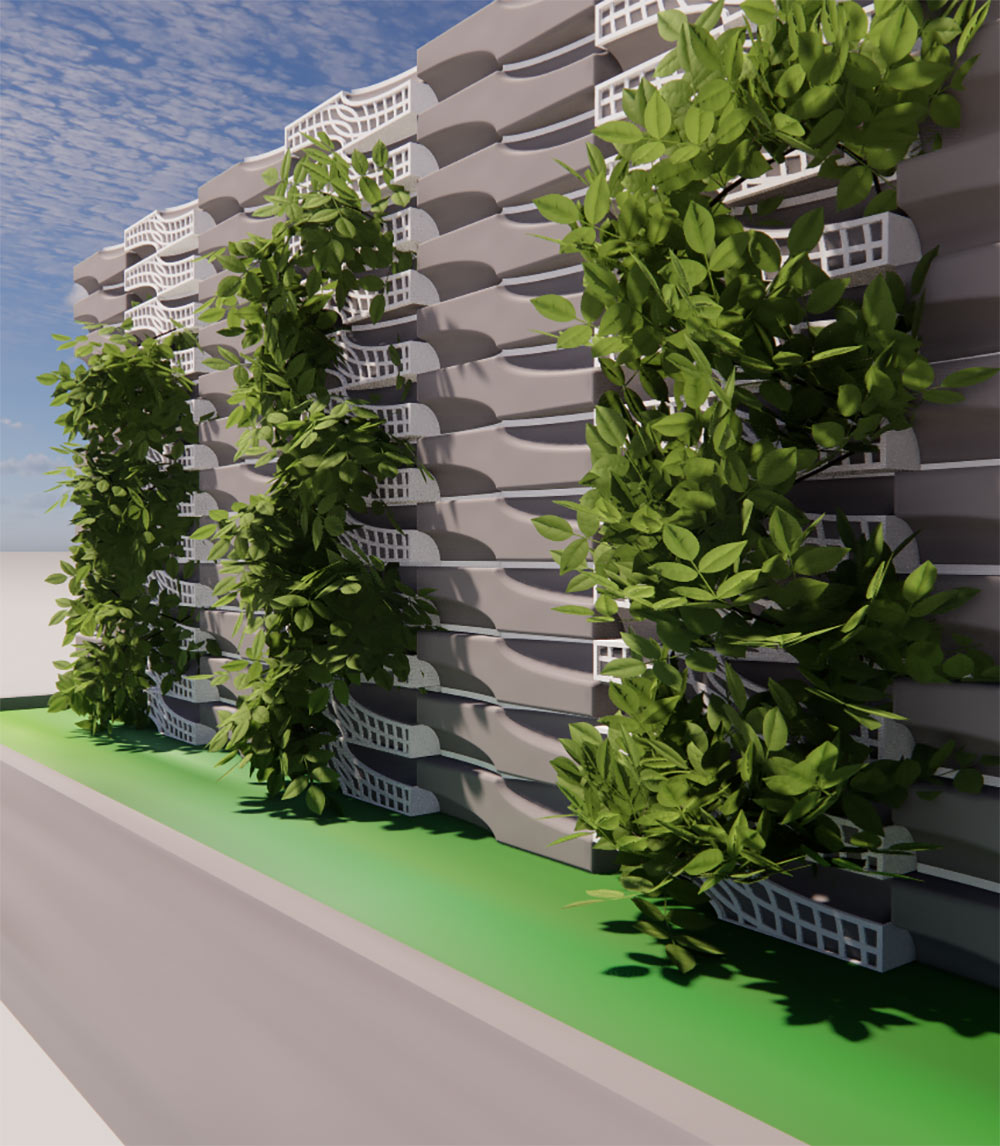
Four Mississippi State junior architecture students are first place award winners in a national concrete masonry competition.
Jennifer K. “Jenny” Hutton of Southaven; Sarah E. Mixon of Huntsville, Alabama; Gabriella B. “Gabbi” Morelli of Delmar, Delaware; and Skylar N. Sloan of Saltillo recently presented their team’s custom concrete masonry unit design, “The Ellipse,” at the National Concrete Masonry Association Midyear Meeting in Milwaukee, Wisconsin.

Teams in the annual NCMA Concrete Unit Design Competition were evaluated on use of modular coordination, manufacturing efficiency, innovation, technical performance including potential stability and weathering resistance, and quality of craft and presentation. The jury included a nationally known architect, engineer, mason contractor and producer.
Jason Thompson, NCMA vice president of engineering who served as judge this year, said he was amazed by these budding designers’ ability to re-envision the traditional while educating and provoking thought in more seasoned professionals.
“It’s fantastic how each of these systems combines the permanence of masonry into an organic form that challenges the conventional definition of masonry,” he said.

MSU Associate Professor of Architecture Jacob Gines said the MSU teams have stepped up to that challenge since first entering this NCMA competition in 2018.
“We’ve been fortunate to be named national finalists each year, taking home the top prize twice,” Gines said. “Our teams from the School of Architecture always bring passion, rigor and high design to this competition, and this year’s team is no exception.”
Students completed “The Ellipse” design in Gines’s spring semester materials course.
“Most of the time, concrete masonry units are used as structural elements that are painted or covered, but instead, we were tasked with designing something that not only could be used as a structural element but also a decorative one,” said team member Mixon. “We also had to design a 3D-printed attachment or accessory for the unit.”
Morelli said the team worked to develop a modular unit that would allow for water drainage and incorporated curves into a product that traditionally consists of solely orthogonal geometry.
“We wanted to create something that would allow for a brick wall to have depth to create more interest,” she said.

Gines said the students were able to successfully merge the technical and performative requirements with the intrinsic beauty of a molded and sculpted concrete unit.
“When the units are assembled, they create a stunning array of pattern that is accentuated by profound shadows and pronounced geometries,” he explained. “The way ‘The Ellipse’ turns the corner is particularly profound—reminiscent of the masters who challenged the regularity by which a surface changes direction to reorient the patron.”
In addition to the thoughtful design, the team members believe their personalities helped them stand out in the competition.
“We truly were our authentic selves from the design process all the way through the final presentation,” Mixon said.
Bob Thomas, NCMA president, said attendees were impressed with the MSU team’s creativity, insight, articulation and professionalism.
“Our industry will benefit greatly from developing design professionals brainstorming new solutions to modern buildings, so concrete masonry remains progressive and relevant in the decades to come,” Thomas said.
The students said they made their design stand out by paying close attention to production and application, two concepts they learned during a tour of Saturn Materials LLC of Columbus, which sponsors the local Unit Design Competition.

“It is always a great pleasure to see young minds materializing their thoughts,” said Fred Dunand, president and owner of Saturn Materials LLC. “Sponsoring and supporting this team of future professionals was a privilege, and I also want to give a special thank you to the local UPS store that supported our team.”
Morelli said this project taught her an important lesson about considering materials and their properties when deciding on systems to implement in design.
“Something can be beautiful, but if it is not practical, using it as a design element will not be sustainable,” she said.
MSU’s School of Architecture offers the state’s only professional architecture degree accredited by the National Architectural Accrediting Board. Learn more at www.caad.msstate.edu.
MSU is Mississippi’s leading university, available online at www.msstate.edu.